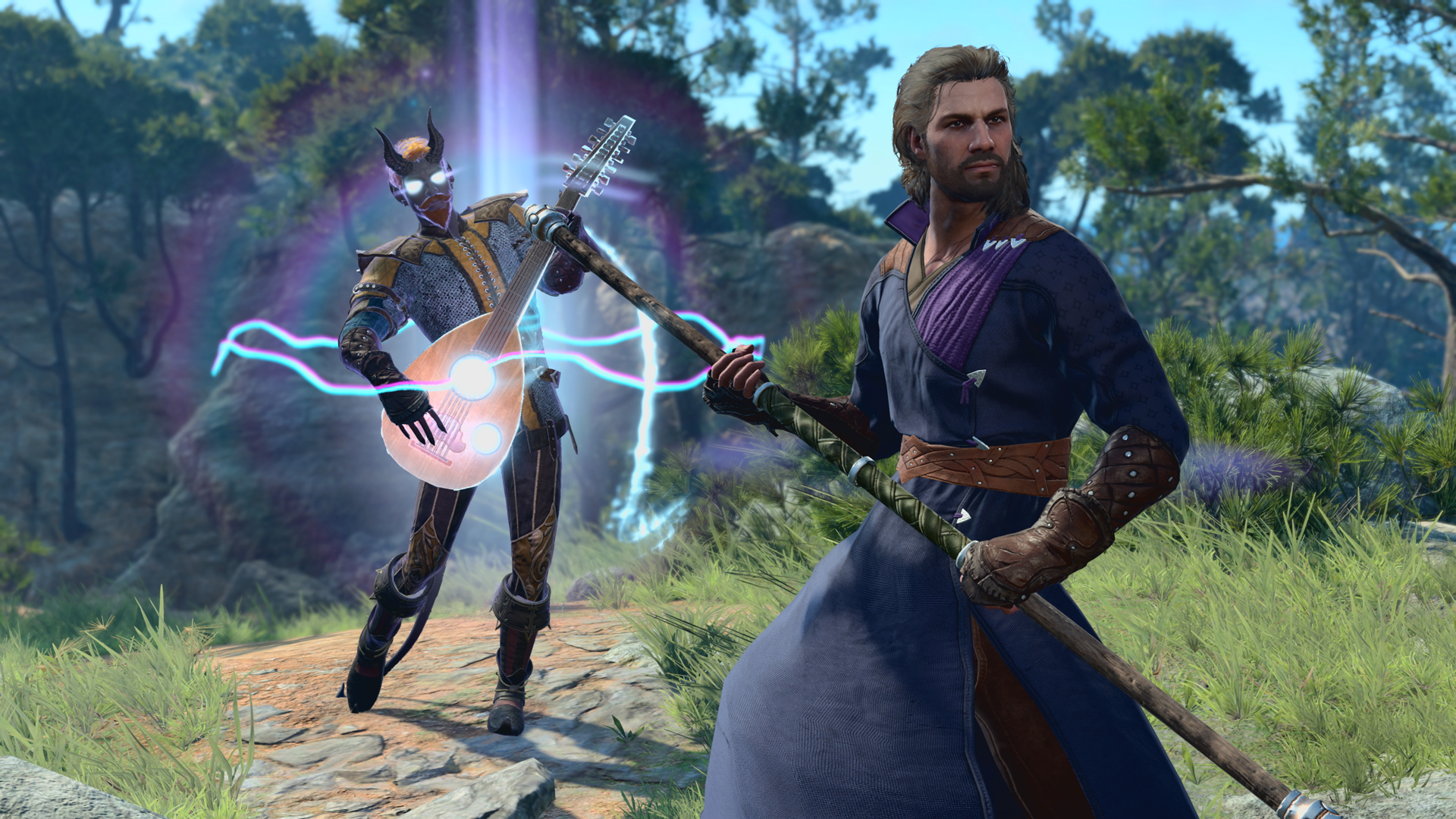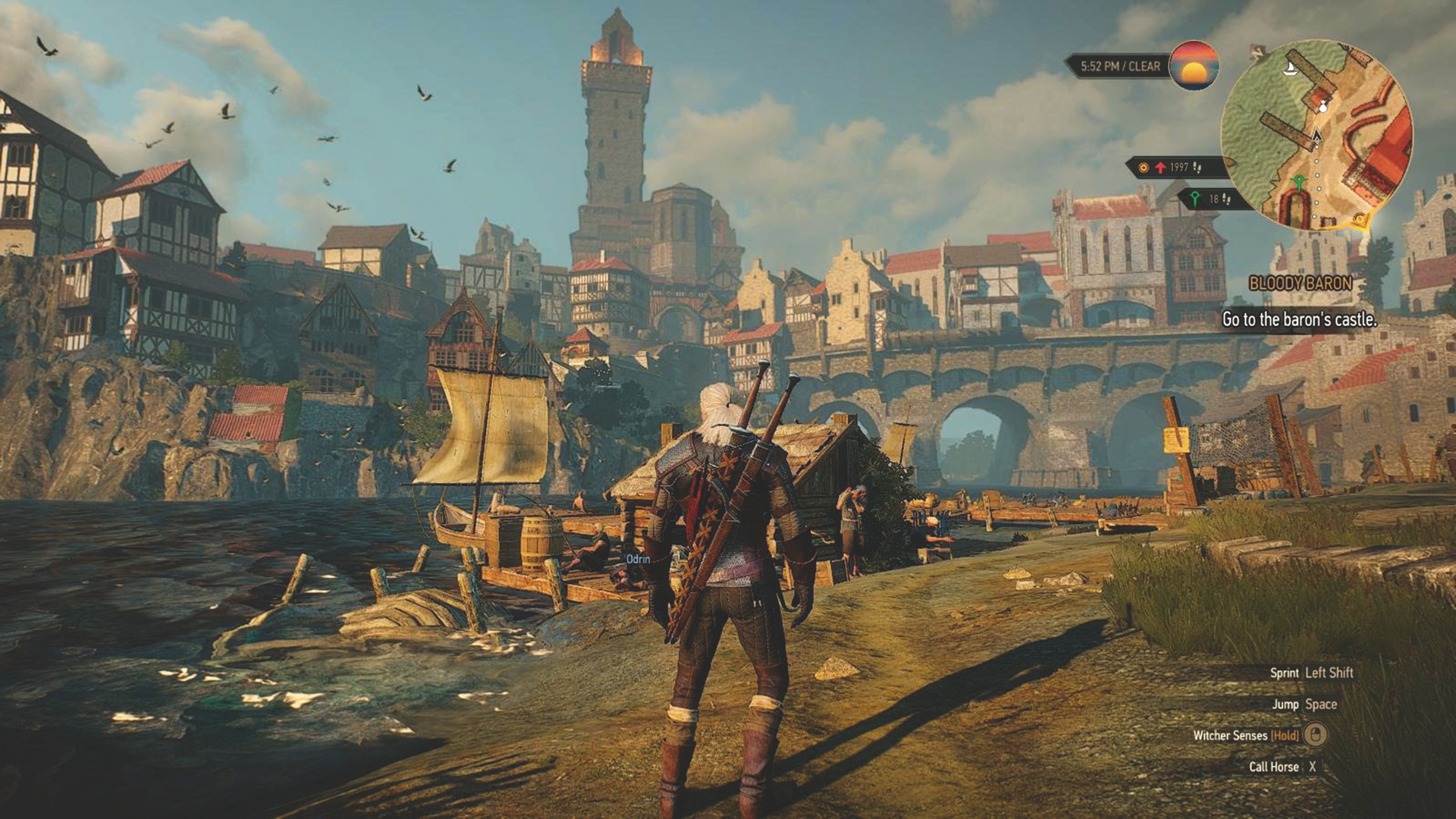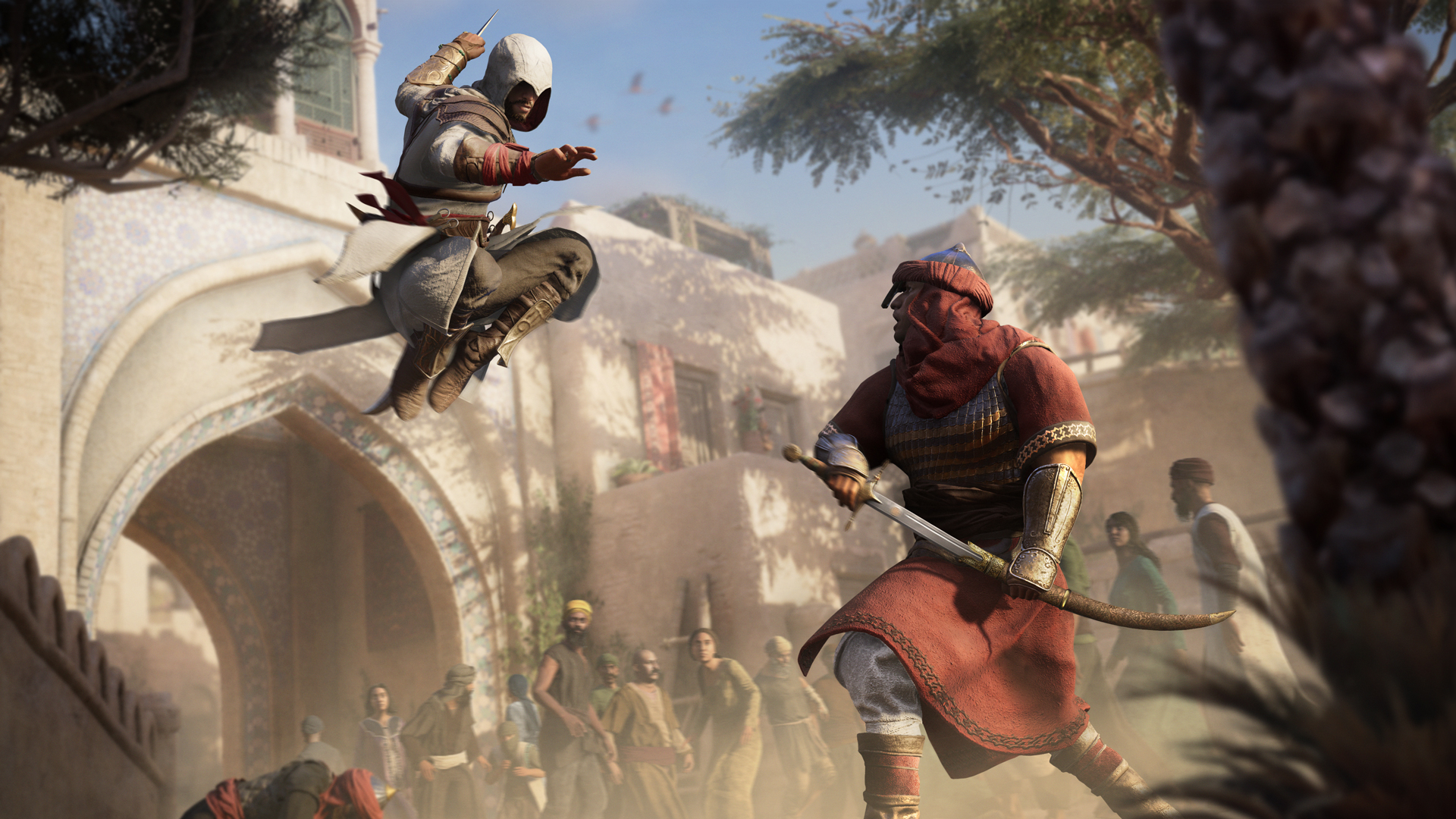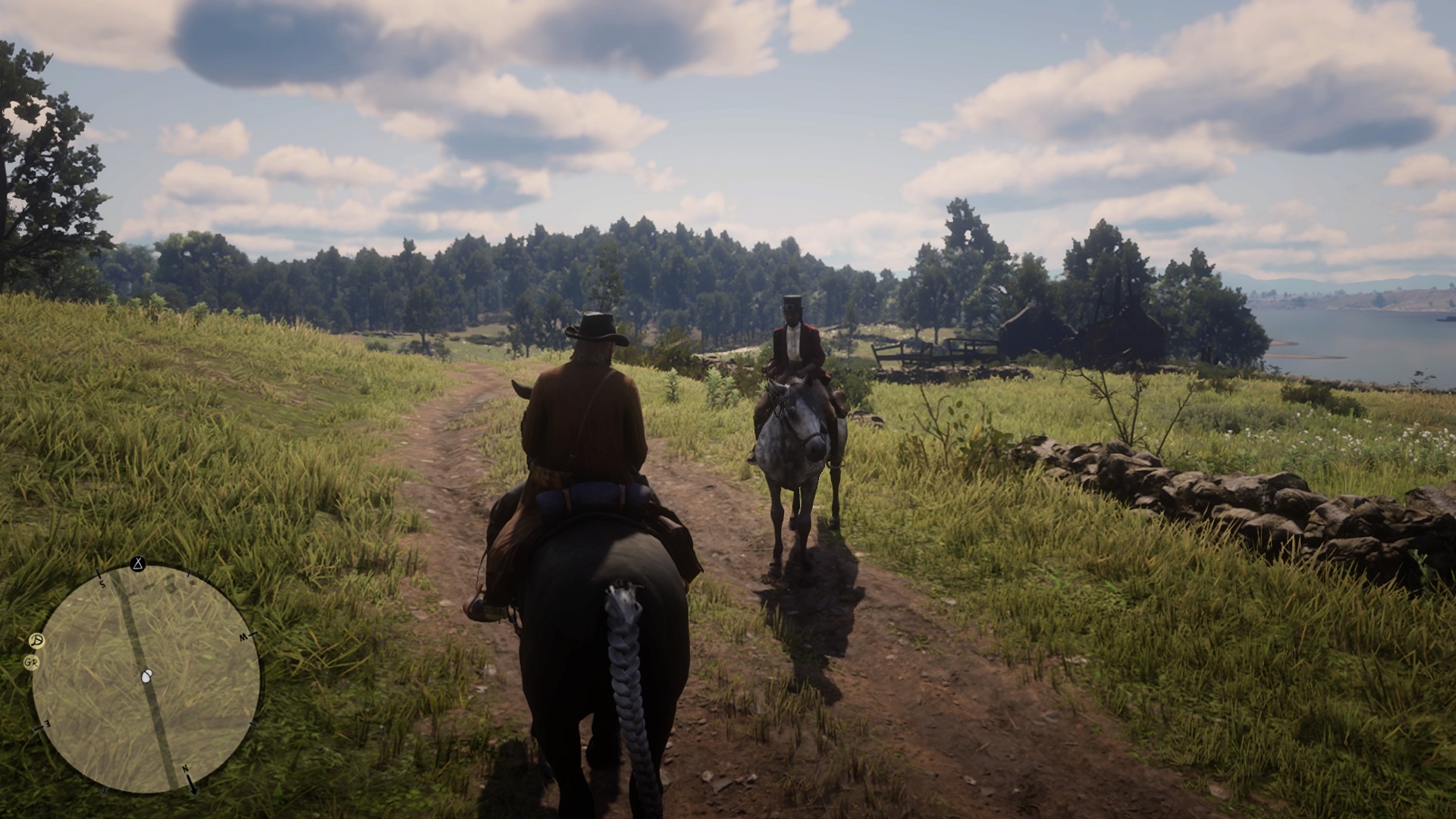It's not that we don't have enough RPGs, we've just been spoiled by the classics
Opinion | With Starfield and Baldur's Gate 3 on the horizon, quality over quantity is what separates the RPG goods from the greats

RPG fans are expecting nothing short of perfection from Baldur's Gate 3 and Starfield. Though offering two different universes – one intergalactic sci-fi adventure, one mystical dark fantasy – both games strive to deliver immersive, memorable, and dynamic role-playing experiences when they launch just a few days shy of each other on their respective platforms. This will come just weeks after Baldur's Gate 3 lands early on PC, creating a marked overlap between the two games. Lead writer Adam Smith says developer Larian isn't bothered by the release date proximity; "I don't think there's been enough big RPGs recently to sink your teeth into, and then a bunch all at once this year," he told us in an interview. "It's good to be in the company of other RPGs."
But is it really a case of us needing more in the way of "big RPGs" on deck, or do we just need better ones? There's a reason The Witcher 3 is still regarded by many as the best RPG ever, even eight years after being released, and I don't think that's down to map size and scale alone. With so much expectation heaped upon both games, I'm hoping Starfield developer Bethesda and Larian respectively don't fall prey to the pitfalls suffered by other, more recent RPG releases, which inevitably spelled out their own short-lived popularity.
Take me back


Baldur's Gate 3 and Starfield are just two new games for 2023 to add to your list.
One core reason I think newer RPGs haven't always met our lofty expectations is because they have little to no replayability factor. Completing that first run at all is no mean feat in an RPG, considering most will take you well over 40 hours to get through. Keeping players invested for their entirety and leaving us wanting more is a surefire indication of a great game, something I've found The Witcher 3 and Red Dead Redemption 2 to have demonstrated to perfection. New Game+ mode comes in handy too, of course.
Cyberpunk 2077 is a classic example of what happens when a developer fumbles the bag in this regard. Despite its promises of innovative world-building and branching narratives aplenty, Cyberpunk was beset by a host of game-breaking bugs upon release that ruined the experience and left it virtually unplayable for years. It's in much better shape now, with the Phantom Liberty DLC slated for release this September for current gen and PC platforms, but it's a fact of the matter that CD Projekt Red put out a broken game instead of ironing out its myriad issues. This led many of us to hold off on playing Cyberpunk until the worst of the bugs were squashed and, consequently, the game has struggled to get back into our good graces after the initial let-down.
Both Larian and Bethesda have shown incredible skill when it comes to crafting a replayable game, with Divinity: Original Sin 2 and Skyrim being prime examples of long-lasting legacy RPGs from each studio. Still, looking ahead to Baldur's Gate 3 and Starfield, I don't think it's unreasonable to approach with caution. The state of Bethesda-published Redfall earlier this year has left a bitter taste in my mouth, so I'm more than a little bit concerned about Starfield – not least because the concept of 1,000 planets is overwhelming to me.
The odd bug or two (or three) can be charming in a way, a little reminder of the staggering amount of work that goes into creating open, lived-in worlds with such a vast range of possibilities to explore within it. You only need to look at the sad fate of Assassin's Creed Unity to see that there is a line to be toed with just how much jank a developer can get away with before entertaining bugs cross over into something that feels sloppy, unfinished, and more than a little bit disappointing. What's the point of a huge map if you can't play the game properly, after all? Respect between the developer and the player needs to go both ways, and I feel we are right to have high standards for these upcoming RPGs within reason.
Scope over scale

Both Larian and Bethesda have shown incredible skill when it comes to crafting a replayable game, with Divinity: Original Sin 2 and Skyrim being prime examples of long-lasting legacy RPGs from each studio.
If there's one thing that Geralt's sprawling terrain of The Continent has in common with some of the best open world games, it's that good writing and mission design helps guide us through it. A massive world is only as good as its utility, and in my mind, I would rather have a select number of "big RPGs" that do the job well than a slew of games gunning for style over substance.
Weekly digests, tales from the communities you love, and more
When I read about Starfield's thousand-strong planets and solar systems, my eyebrows shot up to my hairline. An open world game in space sounds daunting, seen on a smaller scale in the Mass Effect series, but with the sheer unending vastness of space outstretched before us in Starfield, a part of me is concerned that Bethesda is biting off more than it can chew. Frolicking around Hyrule in Zelda Tears of the Kingdom is staggering enough for me, with the new additions of Sky Islands and The Depths to wade through; the prospect of so many places to explore and things to interact with in Bethesda's upcoming epic is rightfully making my palms sweat.
We already know that not all of the 1,000 planets will feature missions or support life and NPC inhabitants, which eases my self-ascribed pressure to jet off to each one, but it does beg the question: if all these planets aren't going to be useful to the player, why have them at all? By promising an open world in the depths of space, Bethesda runs the risk of shooting itself in the foot. There's no excuse to not include these far-flung galaxies, but unless there's an in-game purpose for them, we could be gearing up for a litany of beautiful, yet inherently empty, shells.
Do we need more large-scale RPGs? Probably. Is scale all that matters? Definitely not. Given each studio's track record for creating strong games in the past, all eyes will be on Larian and Bethesda to see if they deliver the goods. Both Divinity: Original Sin 2 and Skyrim show the developers' expertise at nailing something found across the best RPGs: a balance between story-driven directives and player-led exploration, giving us worlds that feel richer, fuller, and ultimately worthy of our time.
Check out the best Xbox Series X games to play as you wait for Starfield.

Jasmine is a staff writer at GamesRadar+. Raised in Hong Kong and having graduated with an English Literature degree from Queen Mary, University of London in 2017, her passion for entertainment writing has taken her from reviewing underground concerts to blogging about the intersection between horror movies and browser games. Having made the career jump from TV broadcast operations to video games journalism during the pandemic, she cut her teeth as a freelance writer with TheGamer, Gamezo, and Tech Radar Gaming before accepting a full-time role here at GamesRadar. Whether Jasmine is researching the latest in gaming litigation for a news piece, writing how-to guides for The Sims 4, or extolling the necessity of a Resident Evil: CODE Veronica remake, you'll probably find her listening to metalcore at the same time.


